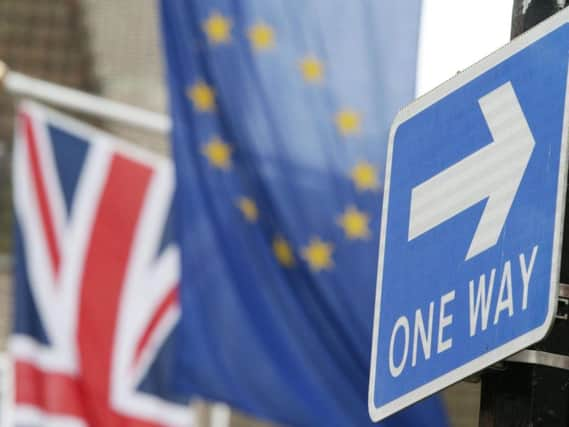Chris Stott: Why businesses must persevere in the face of Brexit uncertainty


More from business
The economic outlook, the political order, Britain’s relationship with Europe or even what constitutes a high tackle in the Rugby World Cup right now – we live in a period plagued by uncertainty.OK. Fans being left in the dark over World Rugby’s refereeing policy is not earth shattering. That said, the concept of not knowing the rules of engagement and what might come next is a feeling shared by many business leaders. Management teams are unsure what the future looks like for their own operations and the conditions that will shape them. People say that uncertainty is the enemy of investment and growth. But, does it mean that everything will stop? No. It just means that they have to adjust their game plan. Of course, there are some businesses that put certain decisions on hold. However, most leaders realise that standing still is not an option. The agitation that uncertainty provides creates challenges and opportunities – both of which must be addressed. That requires business leaders to be flexible and consider putting alternative plans in place. It doesn’t mean doing nothing. Admittedly, as a dealmaker, our industry has seen traditional M&A activity slowdown. Yet, while the big-ticket deals might be on ice, other forms of acquisitions, disposals and mergers just make strategic sense at this point in the cycle. Quite simply, they can unlock new geographies, products and expertise – often at a time when growth is proving hard to come by and most needed.The changing profile of deals coming in the pipeline are just different. For us, we’ve never been busier with non-core disposals – where large corporates move to sell-off peripheral elements of their operations. Essentially, management teams have come to realise that these typically lower profile, unloved or under invested divisions would be better served under independent ownership.For the vendors themselves, disposing of non-core assets allows greater focus on strategic priorities – fewer distractions from their bread and butter operations – as if Eddie Jones were to call on his England squad to stick to a traditionally abrasive game of rucks and set-pieces. Selling non-core assets is a de-risking strategy. It enables the limited capital available to be put to better and more efficient use at the heart of a business. And in return, the timing couldn’t be better with quality assets commanding healthy and full prices, which can be reinvested back into the organisation.Local businesses who have deployed this strategy recently include Pontefract-based Tangerine Confectionery selling Butterkist popcorn to Intersnack, Sheffield-headquartered building materials specialist SIG plc’s proposed sales of both its Air Handling Division and its Building Solutions Division and Leeds-headquartered food conglomerate Hain Celestial Group’s sale of Tilda rice to Ebro Foods.The non-core selling trend is playing an important role in fuelling the private equity deals market which has an insatiable appetite for these assets. Prising a business from its mothership is never easy and often requires considerable investment. But private equity houses are armed and motivated with the dry powder to get good deals done. They can give those businesses the attention they deserve in a bid to capitalise on the potentially significant upside that their new-found independence can offer. Good examples of this include Leeds-based private equity house LDC’s investment in RIBA Enterprises, the commercial arm of the Royal Institute of British Architects and Elysian capital’s investment in utilities services operation Fastflow, which was part of Northumbrian Water.Yet, even if deals fall over and don’t complete, there is still work to be done. For those business owners that are unable to find investment or even sell-up completely, we’ve seen an increase in deals with alternative debt providers. These lenders are providing a new route to raising funds needed for growth.Critically, these ‘unitranche’ deals also have a de-risking element. With such little visibility of what the political and economic climate might be in the short and medium term, they offer a chance to take money out of a business now and realise some of the value they have worked hard to build.So, whatever happens in the coming weeks and months in Brussels or the City, you should take confidence that the world isn’t going to stop turning and your strategic options won’t run out. Just as you play to the whistle in rugby, the dealmaking and business community is persevering and making the most of the current conditions. The wind and rain might muddy the pitch, but you adjust your game plan and keep pressing forward.
By Chris Stott, partner in the deal advisory team at KPMG